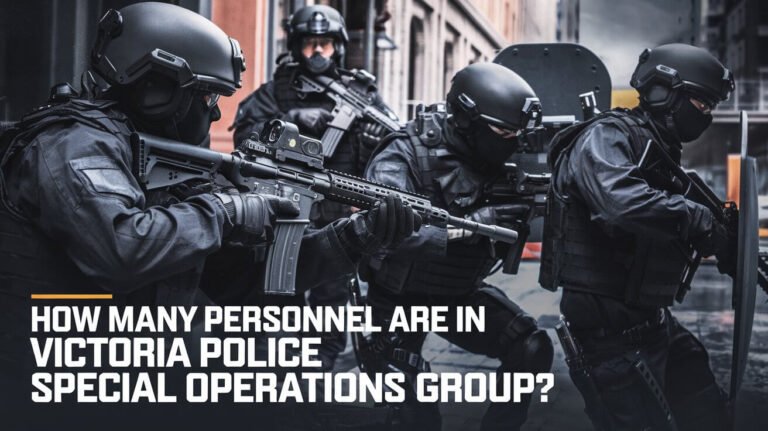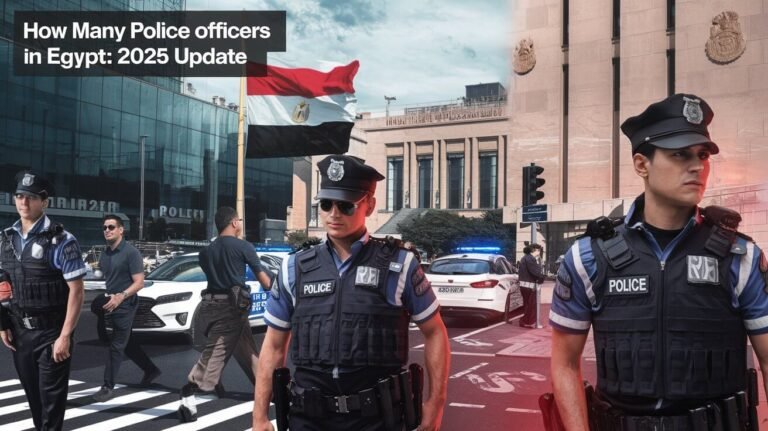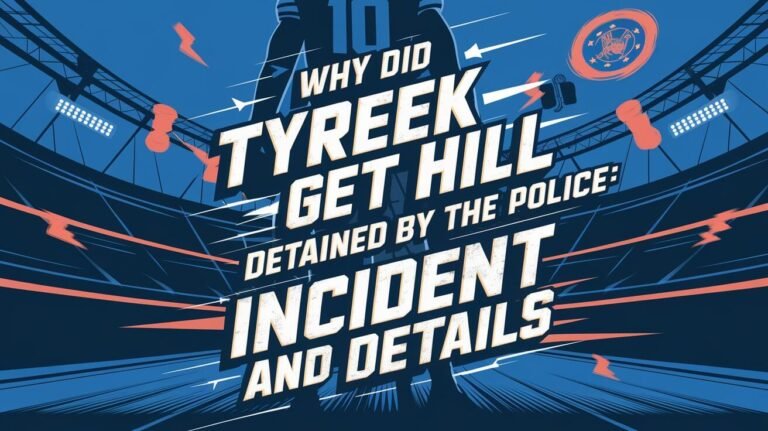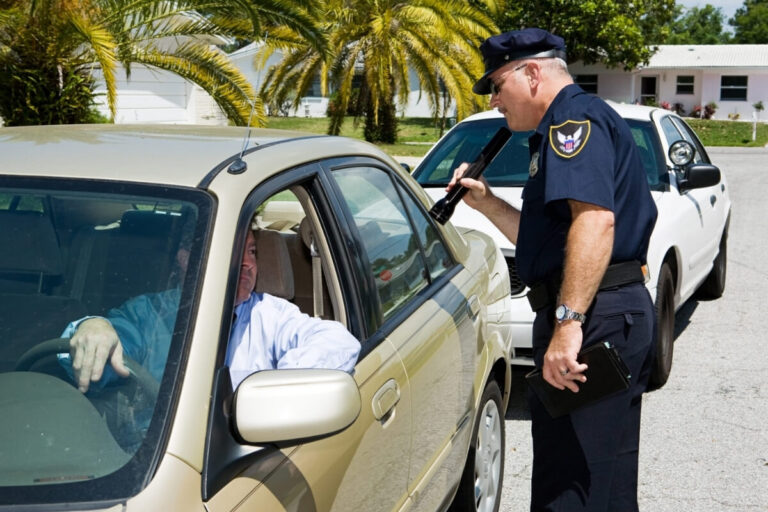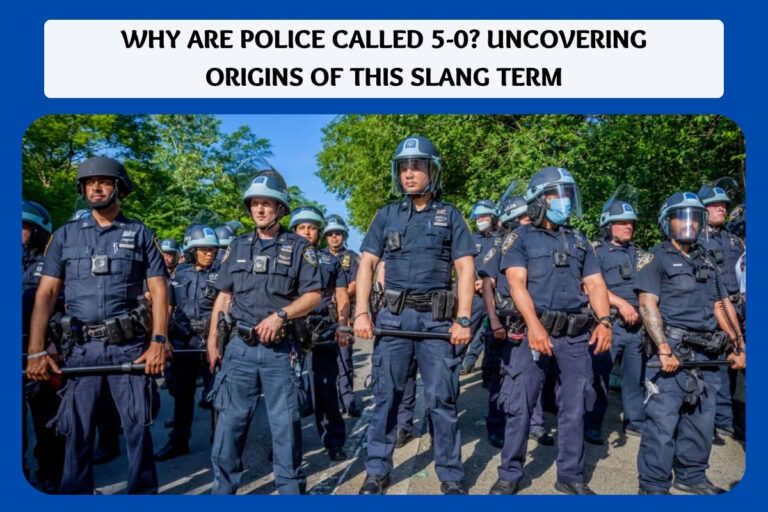Police Officer Exam Requirements: Your Complete Guide to Passing the Test
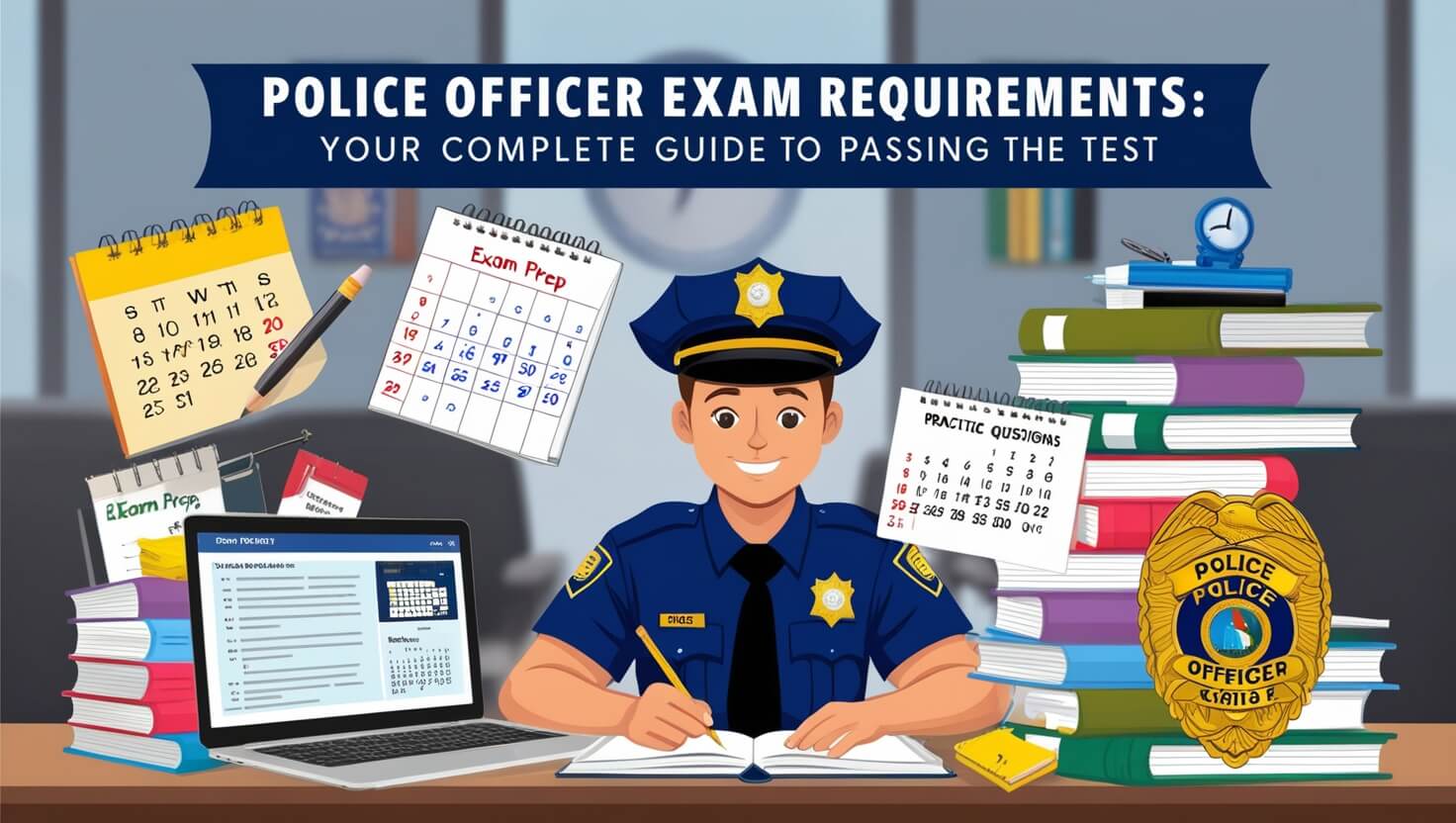
Becoming a police officer is a noble and challenging career path. The first step on this journey is passing the police officer exam. Police officer exam requirements typically include a written test, physical fitness assessment, oral board interview, and background check. This comprehensive guide will walk you through each component, helping you prepare for success.
What Are Police Officer Exams?
Police officer exams are designed to assess a candidate’s suitability for law enforcement work. These tests evaluate various skills and qualities essential for effective policing.
Purpose of Police Entrance Exams
The main goal of these exams is to identify candidates who possess the necessary skills, knowledge, and personal qualities to excel as police officers. They help departments select individuals who can handle the demands of the job and serve their communities effectively.
Types of Police Officer Tests
Different departments may use different exams. Some common ones include:
- National Police Officer Selection Test (POST)
- Law Enforcement Entrance Exam (LEAB)
- NCJOSI (National Criminal Justice Officer Selection Inventory)
Each test has its own format and focus, but they all aim to measure similar skills and attributes.
Common Components of Police Officer Exams
Police officer exams usually consist of several parts. Let’s break them down:
Written Test Sections
The written portion of the exam typically covers:
- Reading comprehension
- Math and problem-solving
- Grammar and writing skills
- Memory and observation
- Situational judgment
These sections test your basic skills and ability to think critically in law enforcement scenarios.
Physical Fitness Assessment
The physical test ensures you’re in shape for the demands of police work. It often includes:
- Push-ups
- Sit-ups
- 1.5-mile run
- Obstacle course
Oral Board Interview
This face-to-face interview assesses your communication skills, judgment, and personality traits. You’ll answer questions about your background and how you’d handle various situations.
Background Check and Drug Screening
A thorough background check and drug test are standard requirements. They ensure candidates have a clean record and are drug-free.
Written Test Requirements for Police Officers
The written test is often the first hurdle in the police officer exam process. Here’s what you need to know about each section:
Reading Comprehension
This section tests your ability to understand and interpret written information. You’ll read passages and answer questions about them. Practice reading complex texts and identifying key points to prepare.
Mathematics and Problem-Solving
Basic math skills are crucial for police work. You’ll face questions involving:
- Addition, subtraction, multiplication, and division
- Percentages
- Basic algebra
- Word problems
Brush up on these skills to boost your confidence in this section.
Grammar and Writing Skills
Clear communication is vital for police officers. This part of the exam evaluates your ability to:
- Use proper grammar
- Identify spelling errors
- Write concise, clear reports
Improve your writing skills by practicing report writing and reviewing grammar rules.
Memory and Observation
Police officers must have sharp observation skills and good memory. This section might include:
- Viewing an image or video and answering questions about it
- Memorizing details and recalling them later
Enhance your memory and observation skills through practice exercises and games.
Situational Judgment
This part presents scenarios you might face as a police officer. You’ll need to choose the best course of action based on department policies and common sense.
Study police procedures and ethical guidelines to prepare for these questions.
Physical Fitness Test Requirements
The physical fitness test ensures you’re ready for the physical demands of police work. Here’s what to expect:
Strength Tests
Common strength tests include:
- Push-ups: Measures upper body strength
- Sit-ups: Tests core strength
Practice these exercises regularly to build your strength and endurance.
Cardiovascular Endurance
Most departments include a running test, often a 1.5-mile run. Work on your cardio fitness by running regularly and gradually increasing your distance and speed.
Flexibility and Agility
Some tests include an obstacle course or flexibility assessments. Incorporate stretching and agility drills into your workout routine.
Preparing for the Physical Fitness Exam
Start training well before the exam date. Aim for a balanced workout routine that includes:
- Strength training
- Cardiovascular exercise
- Flexibility work
Consult with a fitness professional to create a training plan tailored to the police fitness test requirements.
Oral Board Interview Requirements
The oral board interview is your chance to shine in person. Here’s how to prepare:
Common Interview Questions
Be ready to answer questions like:
- Why do you want to be a police officer?
- How would you handle a conflict with a fellow officer?
- What are your strengths and weaknesses?
Practice your responses, but keep them natural and honest.
Behavioral Scenarios
You’ll likely face questions about how you’d handle specific situations. For example:
- How would you deal with an aggressive suspect?
- What would you do if you witnessed a fellow officer breaking the law?
Think through these scenarios ahead of time and consider the ethical implications of your actions.
Tips for Acing the Oral Board
- Dress professionally
- Maintain good eye contact
- Speak clearly and confidently
- Be honest and straightforward
- Show enthusiasm for the job
Practice with mock interviews to build your confidence and refine your responses.
Background Check and Drug Test Requirements
The background check and drug test are crucial parts of the police officer exam process. They ensure that candidates meet the high standards required for law enforcement.
What Disqualifies Candidates?
Common disqualifiers include:
- Felony convictions
- Recent drug use
- Poor credit history
- Dishonorable discharge from the military
Be honest about your background. Lying on your application is an automatic disqualifier.
Drug Testing Procedures
Most departments use urine tests to screen for drugs. Some may use hair follicle tests, which can detect drug use from further in the past.
Stay clean well before applying to ensure you pass the drug test.
Importance of a Clean Record
A clean record shows that you’re trustworthy and responsible. If you have minor infractions in your past, be prepared to explain how you’ve learned and grown from them.
Preparing for Police Officer Exams
Proper preparation is key to passing the police officer exam. Here are some strategies to help you succeed:
Study Resources and Practice Tests
Use a variety of study materials:
- Police exam prep books
- Online practice tests
- Study groups with other applicants
Take multiple practice tests to familiarize yourself with the format and timing of the exam.
Physical Training Tips
Start your physical preparation early:
- Gradually increase your workout intensity
- Focus on exercises similar to those in the fitness test
- Get enough rest and eat a balanced diet
Consider working with a personal trainer who has experience with police fitness tests.
Time Management Strategies
During the written exam:
- Read each question carefully
- Don’t spend too much time on any one question
- If you’re unsure, make an educated guess and move on
Practice with timed tests to improve your speed and accuracy.
After the Exam: Next Steps in Becoming a Police Officer
Passing the police officer exam is just the beginning. Here’s what comes next:
Police Academy Training
If you’re selected, you’ll attend the police academy. This intense training program covers:
- Law and criminal procedures
- Firearms training
- Emergency vehicle operations
- First aid and CPR
- Physical fitness
Be prepared for a challenging but rewarding experience.
Field Training and Probationary Period
After the academy, you’ll complete field training with experienced officers. This hands-on experience helps you apply your skills in real-world situations.
Most departments have a probationary period for new officers, typically lasting 6-12 months.
Frequently Asked Questions About Police Officer Exam Requirements
Minimum Age and Education Requirements
Most departments require candidates to be at least 21 years old and have a high school diploma or GED. Some may prefer or require college credits or a degree.
Retaking Failed Exams
If you don’t pass the exam, most departments allow you to retake it after a waiting period. Use this time to study and improve your weak areas.
Differences in Exam Requirements by State
Exam requirements can vary by state and even by department. Research the specific requirements for the agencies you’re interested in joining.
Conclusion: Mastering Police Officer Exam Requirements
Passing the police officer exam is a challenging but achievable goal. By understanding the exam requirements and preparing thoroughly, you can increase your chances of success. Remember, becoming a police officer is about more than just passing a test. It’s about committing to a career of public service and community protection.
Start your preparation early, stay focused, and keep your ultimate goal in mind. With dedication and hard work, you can meet the police officer exam requirements and take the first step towards an exciting and rewarding career in law enforcement.
Good luck on your journey to becoming a police officer!

